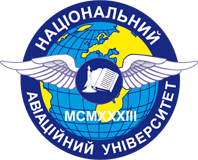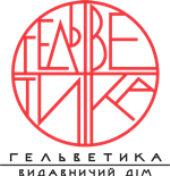MYKOLA DILETSKY’S “MUSICAL GRAMMAR” IN THE CONTEXT OF ENLIGHTENMENTAL TRENDS OF THE 17TH CENTURY
DOI:
https://doi.org/10.32782/uad.2021.1.4Keywords:
Mykola Diletsky, “Music Grammar”, party singing, enlightenment, Vilnius AcademyAbstract
Western European civilization of the XVII century is marked by the active initiation of educational projects, which against the background of numerous religious conflicts contributed to the understanding and establishment of a new system of international relations. In particular, thanks to the signing of the Treaty of Westphalia in 1648, Roman Catholic Christianity and the Protestant churches were equal in rights. At the same time, the national liberation war began in Ukraine under the leadership of Bohdan Khmelnytsky, and in the Moscow principality, on the initiative of Patriarch Nikon, the liturgical reform of the Orthodox rite intensified. All these changes had a religious context and were based on important socio-cultural and educational reforms – printing houses were established, where spiritual polemical literature and church books were printed, music chapels were organized, schools were opened, and so on. In Ukraine, in particular, party polyphony is spreading and universal primary music education is being established, which has contributed to raising the level of musical education of Ukrainians. At this time, talented Ukrainians study at Kyiv-Mohyla or Vilnius Academy, which was famous for its high level of education. Thus, the activity of the Ukrainian composer and theorist, author of the first national music-theoretical treatise “Musical Grammar” – Mykola Diletsky began with Vilna. He became one of a large cohort of educated Ukrainians – theologians, philosophers, writers and musicians, whose efforts were aimed at reforming the liturgical rite of the Moscow principality. For this purpose, he wrote “Grammar of Music” in Vilnius – the result of conscious pedagogical work aimed at spreading polyphonic singing to the East – through Smolensk to Moscow and St. Petersburg. As a result, M. Diletsky’s activity outside Ukraine fully corresponded to the educational tendencies of that time, however, the name of our talented compatriot is still assigned in Russian scientific circles. Therefore, the priority task of Ukrainian musicological thought continues to be the coverage of the activity and popularization of the composer's work of Mykola Diletsky, who actively worked in line with the European educational tendencies of the 17th century.
References
Антонович М. Музичний brain-drain: український вплив на російську літургійну музику. Musica sacra. Львів, 1997. С. 216 (216-228)
Антонович М. Українські співаки на Московщині. Musica sacra. Зб. ст. з історії укр. церковної музики. Львів, 1997. (186-201)
Заболотная Н. Православное богослужебное пение Руси XVII века в условиях смены культурных парадигм. Науковий вісник НМАУкраїни імені П. Чайковського. Київ, 2017. Вип. 119. С. 170-181.
Запаско Я., Ісаєвич Я. Каталог стародруків (1574-1700). Пам’ятки книжкового мистецтва : каталог стародруків, виданих на Україні. Кн. 1: 1574-1700. Львів, 1981. 136 с.
Кузьмінський І. Музиканти на службі східноєвропейських правителів. Локальна історія. Львів, 2020. С. 4-7.
Партесна музика Перемиської єпархії. Рукописні уривки середини ХVІІ – початку ХVІІІ ст. / упоряд. В. Пилипович, Ю. Ясіновський; ідентиф. уривків, реконструкція партитури, передмова О. Шуміліної. Перемишль: Товариство «Український Народний Дім» 2015, 258 c.
Савчук І. Микола Дилецький «Граматика музикальна». Петербурзький список 1723 року: від часу відкриття до опублікування. Українське музикознавство. Київ, 2016. Вип. 42. С. 6–34.
Стріхар О. «Граматика музикальна» Миколи Ділецького та досягнення музично-теоретичної думки кінця XVII – першої половини XVІІІ століть. Мистецтвознавчі записки. Київ, 2011. Вип. 20. С. 79–87.
Тимошенко Л. Руська релігійна культура Вільна. Контекст доби. Осередки. Література та книжність (XVI – перша третина XVIІ ст.) : монографія. Дрогобич: Коло, 2020. 796 с.
Цалай-Якименко О. Київська школа музики XVII століття. Київ-Львів-Полтава, 2002. 488 c.
Цалай-Якименко О. Граматика музикальна. Микола Дилецький. Київ: Музична Україна, 1970 р.
Цалай-Якименко О., Зелінський О. Море непребранноє: новознайдений автограф Миколи Ділецького. Жовтень. Львів, 1966. № 7. С. 109–116.
Шевельов Ю. Москва, Маросєйка. https://parafia.org.ua/biblioteka/statti/moskva-marosejka/
Шевченко І. Україна між Сходом та Заходом. Київ, 2014. 290 с.
Шуміліна О. Перемиські партеси. Калофонія: Науковий збірник з історії церковної монодії та гимнографії. Львів, 2016. Ч. 8. C. 127-136.
Ясіновський Ю. Візантійська гимнографія і церковна монодія в українській рецепції ранньомодерного часу. Львів, 2011. 448 с.
Bercoff G. Rus, Europa, Ukraina, Ruthenia, Wielkie Ksiastwo Litewskie, Rzeczpospolita, Moskwa, Rosia, Europa Srodkowo-Wschodnia: o wielowarstwowosci I polifunkcionalizmie kulturowym. Contributi italiani al XIII congress internazionale degli slavisti. Pisa, 2003. P. 325-387.








